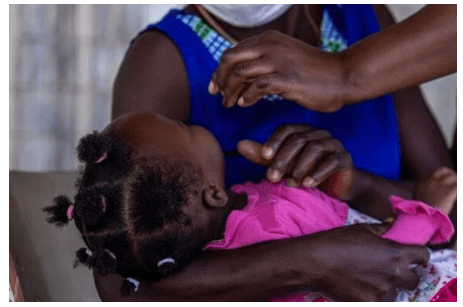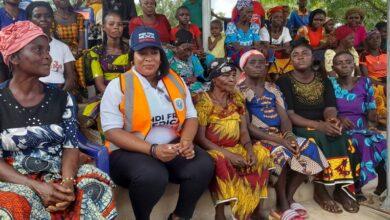
10 Factors Affecting Immunization Coverage in Nigeria
Factors Affecting Immunization Coverage in Nigeria – Immunization is a vital aspect of public health in Nigeria. The reason for this is not far-fetched as it helps to protect individuals and communities from infectious diseases. However, the government is yet to attain high levels of immunization coverage, with about 30-40% of children fully vaccinated against common childhood diseases. Factors contributing to this include restricted access to healthcare in rural areas, vaccine hesitancy, and poor funding for immunization initiatives. However, the Nigerian government has been working to enhance immunization coverage by carrying out vaccination campaigns amongst other efforts. Information Guide Nigeria
Read Also: 10 Factors Affecting Occupational Health and Safety in Nigeria
👉 Relocate to Canada Today!
Live, Study and Work in Canada. No Payment is Required! Hurry Now click here to Apply >> Immigrate to CanadaWhat Is Immunization?
Immunization refers to the process of administering the vaccine to individuals to protect them from contracting certain diseases. Vaccines help the immune system to produce a response against a pathogen which could be a virus, without causing the disease itself. The response then allows the individual to develop an immunity to the disease, which protects them later if the actual pathogen shows up.Factors Affecting Immunization Coverage
What Is Immunization Coverage?
Immunization coverage is the proportion of a certain population that has been vaccinated. It is determined in percentage terms and is used to assess the effectiveness of immunization initiatives programs.
Importance of Immunization Coverage
Immunization coverage is important for many reasons: 10 Best Federal University Hostels In Nigeria
- Preventing the spread of harmful diseases: High immunization coverage helps to protect communities from diseases such as polio and tetanus.
- It helps to protect vulnerable populations: Vulnerable populations like infants and children are protected from severe illness or death. 100 Best University in Nigeria According to World Ranking
- Creating herd immunity: When a large number of the population is vaccinated, it becomes difficult for the disease to spread and this reduces the number of deaths.
Read Also: 10 Factors Affecting Infrastructure Development In Nigeria
Ways to Measure immunization coverage
There are different ways to measure immunization coverage, but two of the most commonly used indicators are:
- Full immunization coverage: This has to do with the percentage of children who have received a set of recommended vaccines by a certain age. It includes vaccines for polio, diphtheria, measles, and polio.
- DPT3 (Diphtheria-Tetanus-Pertussis) coverage: This has to do with the percentage of children who have successfully received three doses of the DTP vaccine at a certain age. NYSC Portal
Strategies to Improve Immunization Failure in Nigeria
Some strategies that can be used to improve immunization coverage in Nigeria include:
- Improvement in vaccine supply chains: This involves ensuring that vaccines are always available to all health facilities, particularly the ones in rural areas. JAMB Portal
- Reducing vaccine hesitancy: This can be done by making accurate information available about the safety and effectiveness of vaccines, as well as addressing certain misconceptions about vaccines.
- Developing the capacity of health workers: This involves providing adequate training to health workers on how to administer the needed vaccines and provide valid information on vaccination to the members of society
- Improving funding: This involves increasing funding and sponsorship for immunization programs and also ensuring that they are a priority on the government’s agenda.
Read Also: 10 Factors Affecting Primary Health Care In Nigeria
History of Immunization Coverage In Nigeria
Immunization coverage in Nigeria has made some level of progress, however, it also experienced some setbacks such as a lack of infrastructure, and poor funding, amongst many others. In the late 1990s, the government began to take commendable steps to improve immunization coverage by implementing campaigns providing more funds for healthcare by increasing the allocation to health from the federal budget. As a result, the rate of coverage began to improve for some vaccines. In 2001, the government embarked on a massive campaign to eradicate polio. The campaign was generally successful as it helped to reduce the number of cases, and Nigeria became polio-free in the year 2015. JAMB Result
👉 Relocate to Canada Today!
Live, Study and Work in Canada. No Payment is Required! Hurry Now click here to Apply >> Immigrate to CanadaIn recent years, the government has renewed its commitment to improving immunization coverage in Nigeria and several strategies have been put in place to ensure full immunization coverage in the country. This is done, taking into consideration, the rising population in the country.
Read Also: 10 Factors Affecting Quality Education in Nigeria
Factors Affecting Immunization Coverage In Nigeria
Several factors affect immunization coverage in Nigeria, some of them include: 200 romantic love message for her
- Lack of trust in the government and healthcare system: Many individuals have lost hope in the government due to the myriad of promises which are never kept. This affects immunization coverage and the health sector at large.
- High population mobility: This refers to the rate at which individuals migrate from one place to another. This makes it difficult to track and reach certain individuals
- Lack of adequate funding: Immunization programs in Nigeria suffers from insufficient funding to ensure the availability of vaccines and other necessary resources.
- Logistics challenges: The supply chain for vaccines in Nigeria is greatly affected by poor road infrastructure and security issues.
- Poor administration of immunization programs: Issues such as poor coordination and rapport between relevant stakeholders also affect immunization coverage in Nigeria.
- Socio-economic factors: Individuals from poor families often have restricted access to healthcare, including vaccination services.105 good morning messages
- Religious beliefs: Some individuals may refuse to be vaccinated due to their cultural or religious beliefs. This also affects immunization coverage in Nigeria.
- Shortage of skilled health workers: Lack of well-trained workers also affects immunization coverage in Nigeria.
- Misinformation and inadequate information about vaccines and their benefits: When the citizens are not adequately informed, they will not know the benefits of being vaccinated, hence immunization coverage will be affected.
- Political instability and insecurity in certain areas: An unstable political environment is not helpful whenever vaccination is to be carried out.
Read Also: 10 Factors Affecting Exclusive Breastfeeding In Nigeria
Conclusion
In conclusion, immunization coverage in Nigeria is generally low, with about 30- 40% of children fully vaccinated against childhood diseases. Some factors responsible for this include vaccine hesitancy, lack of access to healthcare in rural areas, poor management of immunization programs, socio-economic factors, cultural and religious beliefs, and shortage of skilled health workers.
To improve immunization coverage in Nigeria, it is important to address these factors and implement strategies such, as training more health workers and increasing funds and political commitment. With these efforts in place, immunization coverage in Nigeria is expected to improve over time.
Check JAMB RESULT
Check and Confirm: How much is Dollar to Naira








